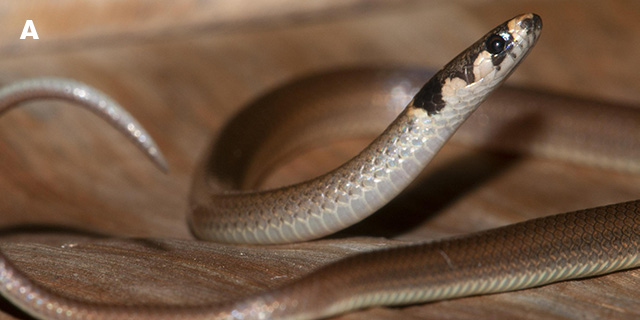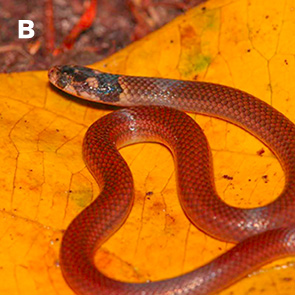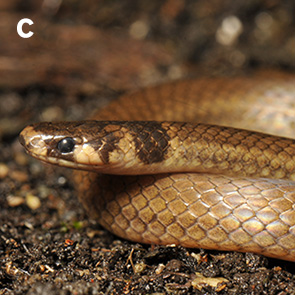Unearthing the species diversity of a cryptozoic snake
For immediate release ‐ September 02, 2021
Contact: Micah Beasley, 919.707.9970. Images available upon request
Despite the widespread distribution ranges of certain cryptic species, their presence on islands often reveals lineages divergent from those on the mainland and even the presence of new species. Therefore, an understanding of both the ecology and evolutionary history of an endangered species on islands is pivotal for ensuring their effective protection and conservation.
In a new paper co-authored by Museum Emeritus Researcher Alvin Braswell, and appearing in the journal Amphibian Reptile Conservation, a team of researchers assesses whether populations of the black-headed snake Tantilla melanocephala from the islands of Trinidad and Tobago, and nearby mainland localities of Venezuela (Peninsula de Paria) and Guyana, constitute the same lineage or if they are part of a cryptic lineage complex, meaning they appear identical but are genetically distinct.
Specimens of Tantilla melanocephala from (A) Tobago, Pigeon Point, (B) Trinidad, Bush Bush, Nariva Swamp, and (C) Venezuela, Caracas, Distrito Capital. Photos by J.C. Murphy (A–B) and L.A. Rodríguez (C).



For more information about our upcoming activities, conservation news and ground-breaking research, follow @NaturalSciences on Instagram, Twitter and Facebook. Join the conversation with #visitNCMNS.

